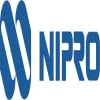Dive Brief:
- More detailed results from a late-stage study are reinforcing the efficacy and safety profile of AstraZeneca's three-in-one inhaler, PT010, at a time when the British pharma's respiratory portfolio is in need of a win.
- The KRONOS study tested PT010 against a trio of two-drug regimens, Bevespi Aerosphere, Symbicort Turbuhaler and the experimental PT009, in the treatment of chronic obstructive pulmonary disease (COPD). AstraZeneca revealed in January that PT010 met eight of study's nine primary endpoints.
- On Monday, the company said PT010 showed a statistically significant 52% reduction in the rate of moderate or severe COPD exacerbations when compared to Bevespi Aerosphere in patients who hadn't necessarily experienced an exacerbation in the last year. As for side effects, AstraZeneca noted that no new unexpected safety or tolerability signals popped up.
Dive Insight:
Respiratory drugs are an integral part of AstraZeneca's business, accounting for about a quarter of its product revenue. Lately, however, some of those drugs haven't been as lucrative.
Sales of the company's blockbuster COPD treatment Symbicort (budesonide/formoterol fumarate) fell 10% under a constant exchange rate during the first half of 2018, due largely to more intense market competition in the U.S. To that point, GlaxoSmithKline's own three-in-one inhaler Trelegy Ellipta (fluticasone furoate/umeclidinium/vilanterol) has become a powerhouse product in the COPD space.

Symbicort made up some ground in the second quarter, but first half revenue from AstraZeneca's respiratory unit remained flat year over year — suggesting broader problems with the portfolio. Indeed, the pharma announced in May that it would hold off on submitting Fasenra (benralizumab) for a COPD indication after the drug disappointed in Phase 3 studies.
"In respiratory, unfortunately Fasenra didn't meet the primary endpoint in COPD, and we're working through where it'll leave us and what are the next steps for Fasenra in that indication," AstraZeneca CEO Pascal Soriot said on the company's most recent earnings call.
Additionally, AstraZeneca's Bevespi Aerosphere (glycopyrronium/formoterol fumarate) recently failed to outperform GSK's Anoro Ellipta in a study of more than 1,100 COPD patients.
PT010 could therefore be a bright spot for AstraZeneca amid its COPD setbacks. The company has said it expects to submit the drug to regulators in Japan and China sometime this year and file for approval in the U.S. and Europe in 2019.
That said, the data presented Monday showed PT010 did not separate from either Symbicort or PT009 in reducing the rate of moderate or severe COPD exacerbations, delivering a numerical but not significant improvement.
Data from another Phase 3 study of PT010, called ETHOS, should read out next year.
"We are encouraged by the results of the KRONOS trial which demonstrate PT010's efficacy in improving lung function and its potential value as a triple combination therapy for patients with COPD," Colin Reisner, head of respiratory global medicines at AstraZeneca, said in a statement.
"Importantly, PT010 also halved the rate of moderate or severe exacerbations compared to [Bevespi Aerosphere] and we look forward to the ETHOS exacerbation trial results in 2019 to further characterise PT010," he added.














